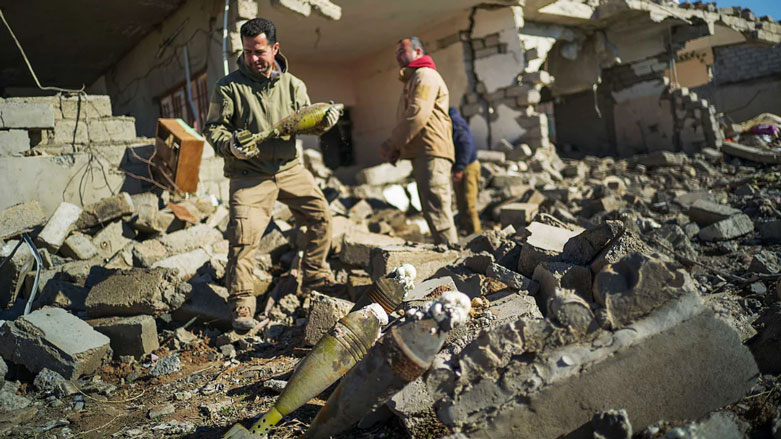UK pledges over $6 million to clear explosives in Iraq set by Islamic State

ERBIL (Kurdistan 24) - The UK's Department for International Development (DFID) announced that it would add £5 million ($6.3 million) to its ongoing donations that support efforts to clear Iraq of bombs and other explosive devices left by the Islamic State (IS) in Iraq.
"Daesh’s [IS'] sickening use of explosive traps continue to threaten children in their schools, mothers in hospitals and thousands of innocent people trying to return to a normal life," said DFID Secretary Penny Mordaunt in a statement released Saturday.
Retreating IS fighters routinely hid hundreds of mines and other explosives under roads, in houses, buildings, farmland, yards, and even among children's toys.
Clearing such devices from schools, hospitals, and roads in Iraq, she continued, is an important step in the effort to eradicate "one of the lasting impacts of Daesh’s reign of terror across the country."
The statement included a partial accounting of some of the chilling discoveries made by UK aid-funded explosive clearance teams in the past year. They included, "A hospital used as Daesh’s HQ in Mosul where 3,500 explosive hazards, including hand grenades and missiles, had to be secured," and "a school in Fallujah rigged with 13 IEDs, which could have seriously injured or killed the 450 children attending the school."
The recipient of the new funds will be the United Nations Mine Action Service (UNMAS), an agency within the UN Department of Peacekeeping Operations that specializes in coordinating and implementing activities to limit the threat posed by mines, explosive remnants of war, and improvised explosive devices.
In total, the UK has provided over £100 million ($127.3 million) to stabilization efforts in Iraq since 2015, which have included securing liberated areas, clearing IS-laid explosives, supporting the renovation of water facilities, power networks, clinics and schools, and supporting communities who lived under IS occupation.
